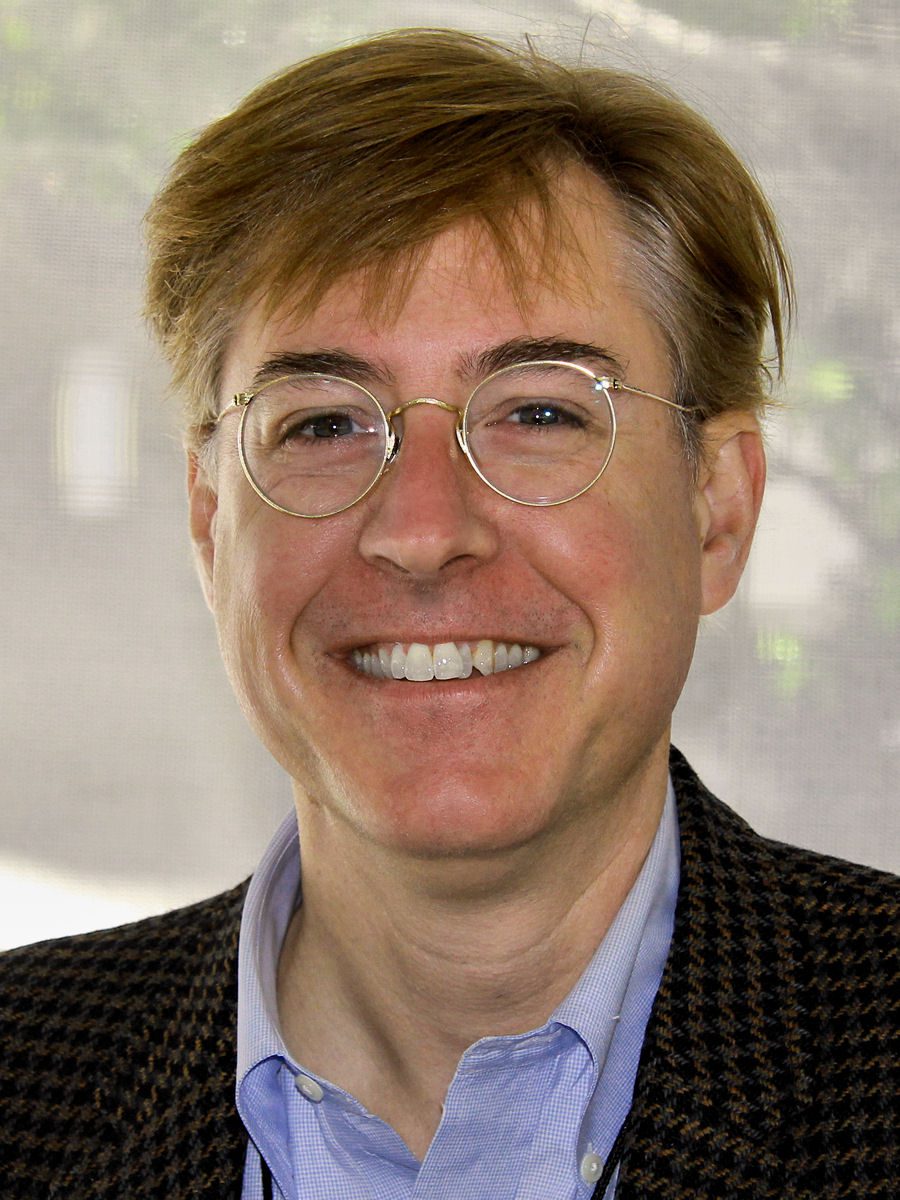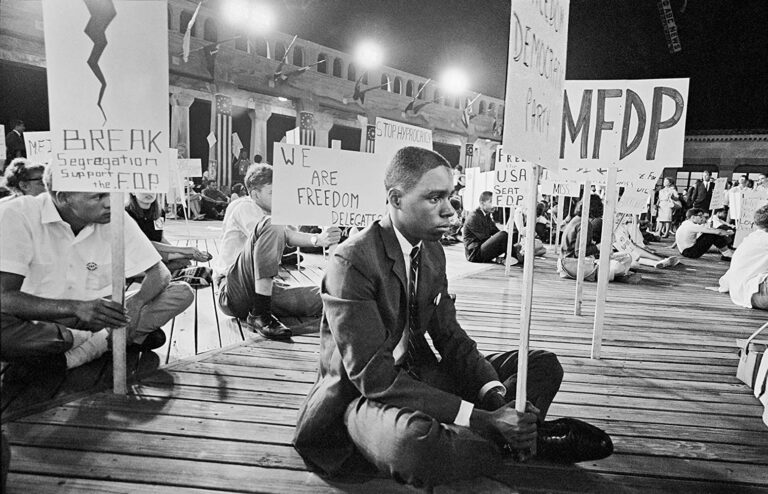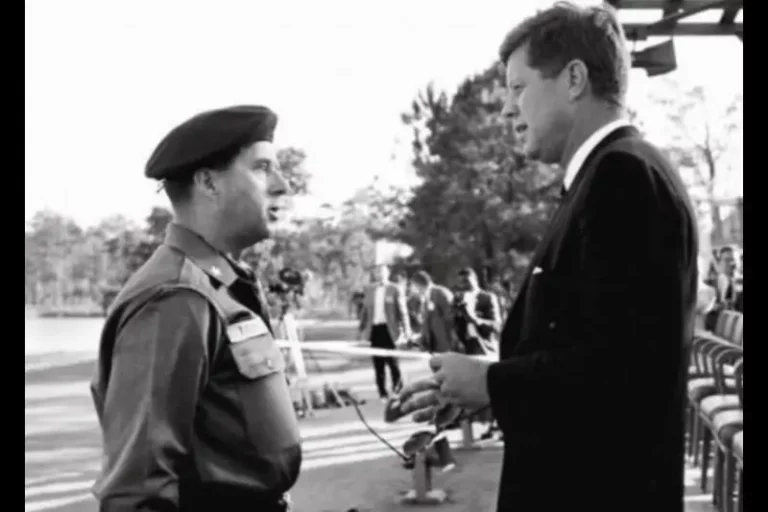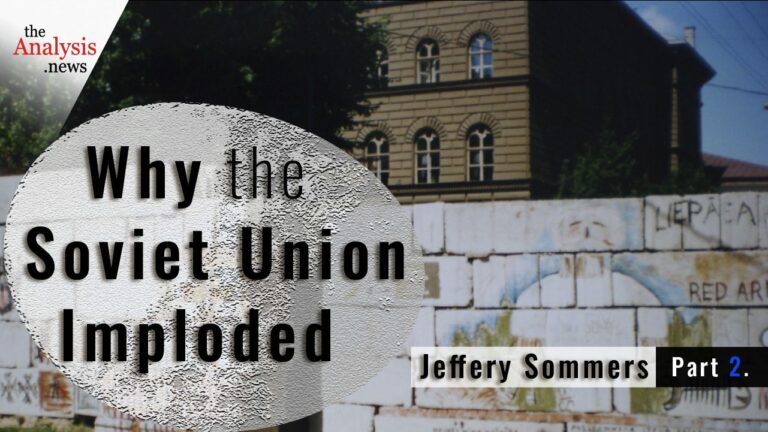Liberal Elites Will Create Conditions for Another Trump – Thomas Frank (3/3)
If Biden and the corporate Democrats continue to deny the real concerns of populist movements, they will ensure a new Trump will emerge. Thomas Frank joins Paul Jay on theAnalysis.news podcast.
Transcript
Paul Jay
Hi, I’m Paul Jay. Welcome to the Analysis.news podcast. This is Part Three of my discussion with Thomas Frank about his book, ‘The People, No’.
So, Thomas, talk more about the mindset and how origins of this, at least modern origins, of this mindset within the elite of the Democratic Party and amongst the elites of the oligarchy, much of it actually on Wall Street, who kind of position themselves as being the anti-right, but really hate the left popular movement.
Thomas Frank
There’s this fascinating moment, Paul, where the word itself, populism, gets flipped and it goes from being a positive thing, you know, the sort of left-wing worker, farmer/worker movement in the 1890s, it goes from that to be a very negative thing to being, something fearful and dreadful. You know, something that’s paranoid and suspicious, and pathological and anti-Semitic. And that moment when that happens is in the 1950s. It’s a really fascinating place where the writing of history intersects, with history itself, with the making of history.
And the man who is probably single-handedly most responsible for this is Richard Hofstadter, the greatest American historian of his day, probably of the 20th century, and aside here. I got a Ph.D. in American history, that’s what I had meant to do with my life when I was young. I was a big admirer of Hofstadter when I was younger and really looked up to him. He’s an elegant writer and an elegant thinker. You know, he brings together these two, these sort of two great functions of a historian, and I thought he was absolutely wonderful. I really looked up to him when I was younger. But now I’m an adult, and I look back at his masterpiece, which is a book that came out in 1955 called, ‘The Age of Reform’, and now as an adult see very clearly what this book is. It was meant as a history of different reform movements in American life. And, you know talking about which ones succeeded and which ones failed. And it was a vicious attack on populism, on the populist movement of the 1890s. But now, as an adult, I can see that it was something else at the same time. It was a manifesto for Hofstadter’s generation, so it was these two things at the same time.
And let’s begin by saying this is the book that really turned the tables on populism and made it into a negative term, a term that you applied to authoritarians and to people like Donald Trump. Hofstetter went back and looked at the original populist movement and said it was, “it was pathological. It was an expression of status anxiety. Farmers were people who were on their way down, and because they were on their way down, they imagined all these scapegoats for their problems, and, you know, they were cranks. They rejected expertise, they were anti-intellectual, and above all, they were anti-Semitic”. And he actually tried to blame anti-Semitism in America, all of it, basically, on populism, which is ridiculous, which is utterly fatuous, but he said that. This book was massively influential, it was a big bestseller. It won the Pulitzer Prize, it has been described as the most influential work of American history ever published. And Hofstadter’s larger idea, as I said, it was a manifesto for his generation and his sociological cohort.
What I mean by that is he said there are two models for reform. One of them is the populist model, a mass movement of working-class people. And that’s how you get reform by bringing together people at the bottom, and he said that doesn’t work. We can see that doesn’t work because populism was a pathological movement that was delusional. They were all hypnotized demagogues, anti-Semitism, scapegoating, et cetera, all of which turned out to be wrong.
But he said there’s another way to do reform, and that other way is to bring highly educated people together and put them in charge of all the different “organs” that go to make up government and society and business and the military. And they will all get together and sit around a big mahogany table in Washington, D.C. and come to an agreement with one another. And that’s how you get things done. And he said this at the very moment, of course, this is how things work in, as we know in the world of ideas. That was, in fact, what was happening. That his generation of intellectuals was coming out of the Ivy League schools, top flight schools and were taking over the corporations. Up until then, corporations had been run by people who inherited them or people who built them, entrepreneurs, that sort of thing. But now they were going to be run by people with MBA’s. people with economics degrees. People with advanced degrees were running the big departments of the government. People with advanced degrees were running the Pentagon. And Hofstadter and his friends, if you think of the other intellectuals of the time, such as Daniel Bell, that’s what they were celebrating. Remember Daniel Bell had a famous book called. ‘The End of Ideology’. You didn’t need ideology or you didn’t need mass movements, you didn’t need millions of people in the streets like you had in the 1890s and the 1930s. You needed people like Daniel Bell, sitting around a big table and making decisions on your behalf. That was the model in the 1950s and Hofstadter’s great book, ‘Attacking Populism’. By great, I mean spectacularly influential book, ‘Attacking Populism’, was a manifesto for that way of understanding the world. You know, The Organization Man, The Man in the Gray Flannel Suit, you know what I’m talking about. And so this book is hugely influential. All sorts of other intellectuals at the time start copying it. They start writing about populism and the word takes on this life of its own. It becomes a stereotype. Now, here’s what Hofstadter never admitted in his book. His stereotype comes directly from the democracy scare of 1896. Remember, we talked about that in the last episode. All of the elites in American society getting together and denouncing William Jennings Bryan. Hofstadter just basically took that picture that they assembled and said, Yeah, that’s what populism really was. It really was a bunch of crazy farmers who really had no idea what they were doing and were rejecting the consensus expertise of their day.
Paul Jay
And then they look at the rise of Hitler and the Nazi dictatorship.
Thomas Frank
Right. That’s the same thing.
Paul Jay
Although the truth is Hitler is given birth to mostly by the German elites,
Thomas Frank
Of course, what happened was that Hofstadter was, within five years after this book came out, this triumphant manifesto for his generation. His attack on populism is completely, crushingly refuted by the American history profession. All of these people who are actual scholars of populism, who dig in the archives and read the Congressional Quarterly. What is it called, though? You know, the speeches in the House of Congress. People who have done the granular, the real research on populism and know what it actually was. These people come back at Hofstadter and within a very short amount of time have completely refuted his understanding of populism. So, like the idea that populism was the fount of anti-Semitism in America is utterly disproven. I mean that’s completely wrong. As as I learned myself in my own research, Paul, anti-Semitism is all over the place in American life, especially among the people who hated populism. They were deeply, profoundly anti-Semitic and anti-immigrant and racist, anti-Black. He’s got the picture completely backward in all sorts of ways, and this is proven. We learned this when I studied, when I was a graduate student in American history, one of these classic tales of someone with a daring, Hofstadter comes forward with this thesis and the thesis is crushingly disproven.
OK, nobody knows that. His thesis was completely destroyed. And yet, this stereotype that Hofstadter embraced, that he took from the 1890’s and from the 1930’s and was then sort of grounded in the social science of the 1950s, that stereotype takes off and his redefinition of the word populism takes off. And in fact, that is how we get this modern discipline that I referred to in an earlier episode, the discipline called Global Populism Studies. It takes its baseline definition of what populism is from Richard Hofstadter, who’s getting the American populist movement completely wrong, who’s using the establishment attack on populism as a definition of what populism is.
This is what I’m saying, Paul. Long story short, this whole redefinition of populism that we see around us every day is a pedagogy that is based on a mistake, a famous historical mistake made in the 1950s. This whole pedagogy that has departments, big-name academics, they get tenure, they publish books, they write articles, they have conferences, TED talks. All of that is based on a famous mistake.
Paul Jay
Or rationalized with a famous mistake.
Thomas Frank
No, it’s based on it. They build on Hofstadter. They don’t often refer to him anymore, but that’s where this whole idea of populism, as, you know, a nicer name for right-wing authoritarianism—That’s where it comes from. It comes from him. And he was completely in error about the populist movement. Anyhow, what’s funny, Paul, is with so many of these questions, the facts don’t really matter. It’s the picture that Hofstadter painted. The stereotype is what really captured people’s imagination. So you’ve got this emerging class. You know, he’s right about that. He and Daniel Bell and the rest of them, they’re right about that. There is this group coming up that is taking charge of the Pentagon, that’s taking charge of the Fortune 500, (The Fortune 500 is an annual list compiled and published by Fortune magazine that ranks 500 of the largest United States corporations by total revenue for their respective fiscal years. The list includes publicly held companies, along with privately held companies for which revenues are publicly available), that’s taking charge of the, you the branches of the government, the big law firms in New York, et cetera; that there is this new cohort that’s running things. And this cohort needs a word to describe who they are, not. To describe what they are displacing, to describe their enemy. And that word is populism. That’s the word they settle upon.
Paul Jay
You write: “It’s the current liberal ideal of Washington, D.C. It’s the philosophy of mainstream American journalism. It’s the strategic model for the cautious, scholarly, consensus minded Clinton and Obama administrations, extending their hands in friendship to fellow elites and Wall Street, Silicon Valley. This is where it all begins”. Talk about this kind of modern version of this anti-populism.
Thomas Frank
Yeah, it’s in some ways, what we’re living with now. It is very similar to 1896 and to 1936, except the political valence of it is flipped.
And what I mean by that is you see this great coming together of this great consensus of the elites. That’s happening all over again. The newspapers in this country, such as they are, there’s basically two of them anymore, The Post and The Times, and they agree on everything. The Post every day you open it up, and it’s the same thing; five anti-Trump editorials every day often denouncing populism, they do it constantly. New York Times, same thing. There’s this consensus among economists. They’re always doing these mass signing of letters. 400 economists say that NAFTA’s, (The North American Free Trade Agreement was an agreement signed by Canada, Mexico, and the United States, creating a trilateral trade bloc in North America), the greatest thing in the world or, you know, whatever the hell it is we’ve talked about, you and I have talked about this before. The consensus of the elites, the grand, what’s that word from European history that when they all came together against Napoleon, what was that called? The concert of Europe. It’s like that, it’s the grand concert of elites only in tones of utter hysteria. And that’s where we are now. Now, I’m not saying that Donald Trump is a real populist. I can’t stand Donald Trump. I think he’s a demagogue and has done incredible damage to this country, into the lives of millions of people.
But the hysteria and the way that the sort of liberal elite of this country has reacted in the last four years is exactly analogous to the way conservative elites reacted against Bryan in 1896, and the way conservative elites reacted against Roosevelt in 1936. These are elites that that were either threatened or could feel themselves being displaced. And they used, at least in one of those cases, the word populist to describe the people who had displaced them.
Paul Jay
Your fundamental argument, if I get it from early in the book, is you actually cannot fight this kind of right-wing movement that backs Trump if you don’t really get what the history of progressive populism is. But you also, as you write the absolute fear, even hatred of working class mass movements, especially of the left, actually, or of the right, especially of the left, this disbelief that controls the Democratic Party is going to keep reproducing the conditions for the rise of a Trump.
Thomas Frank
Yes, because they deny that it’s that. You remember, Paul, I think it was when you and I first met, I had written an article for The Guardian saying, you know, this is early in the days of the of the Democracy scare of 2016 when people were hysterical, that Donald Trump was going to be the Republican nominee. And I said, you know, you look at his speeches. The guy is a bigot. No question about that. And, yeah, a lot of his supporters are racist, no question about that. But he’s also saying these other things. You know, he is reaching out to people on other grounds that are legitimate or sound legitimate. Trump is always full of shit, you know this. He’s always wrong. Even when he’s talking about something, even when he’s, like, superficially correct. His deeper understanding always turns out to be based on something that’s completely wrong. You know this, right? But I said, his criticism of the trade agreements, for example, he’s right about that. That was a legitimate complaint. And the Democrats blow this off at their peril. And you know, give him credit, the guy was saying these endless—-He was criticizing these endless wars. Well, it’s about God damn time somebody criticized these endless wars. He was criticizing Wall Street all the time for bullshit reasons. He doesn’t really understand what happened in the financial crisis. But he at least made a big show of criticizing these people. And then again, remember, he’s done very, very little about it.
But he harnessed that anger just as the Tea Party did before him, which is also a bullshit movement, if you ask me. But the right does this again and again and again. They harness legitimate public anger and bend it to their own, like Citizen Kane, well, he failed, but they tried to bend it to their own purposes. And Trump has succeeded in doing this. But if you just blow it off, now, here’s the thing, if you just blow it off and ignore it, as so many of the Democrats were doing back in 2016, you’re going to remain completely clueless how to stop these right-wing, these sort of backlash flashes that happen again and again in American life. The key idea here, and this is what you know, I’m reading all of these, these anti-populist books and articles that have come out in the last couple of years. There’s a huge outpouring of them, all of them using the word populist to mean racist authoritarian demagogue. And I’m reading these books, and one of the things they’re most upset about is that say populists are anti expert and populism represents the overthrow of legitimate expertise by people who don’t know what they’re doing. And I keep waiting, every time I read one of these, I keep waiting for the other shoe to drop. It’s like, yeah, but the experts screwed up, you know. What about Vietnam? You know, what about the Iraq war? What about, you know, go down the list? What about the financial crisis? What about the bailouts?
Paul Jay
What about Covid-19?
Thomas Frank
Or what about my favorite example, the Hillary Clinton campaign, run by the greatest experts in the business? These people are — There’s just a elite failure after elite failure, after elite failure. So I’m reading these books who are deploring the rise of people who criticize elites, and I’m saying, when are you going to deal with the fact that elites keep failing? Where’s your theory of that? I want to hear your theory of that. They never have one, they never talk about it. It’s as though this is impossible. It’s like it’s ruled out by definition, elites do not fail.
Paul Jay
These elites, particularly these liberal elites because they take zero responsibility for the rise of Trump in the election of Trump. But the fact that you had the greatest inequality gap in the history of the United States under the Obama- Biden administration. I mean, duh, that has no relationship to why there’s a Trump?
Thomas Frank
Absolutely cannot be acknowledged. Absolutely cannot be acknowledged. And even if you make them do it, they’ll find some way to say “It’s not really our fault. There was some legislation from the Bush administration, and we were dealt a bad hand, et cetera, et cetera”. Obama’s heart was in the right place. And maybe it was, but I mean, come on. The whole—-I spent four or five years writing about nothing else but elite failure. And for them to just, you know, pretend as though none of that happened is just absolutely extraordinary. It’s funny because what we’re talking about here, Paul is largely academic literature. These are supposed to be people who are peer-reviewed. This is supposed to be scholarly excellence in action, and if anybody can refute this stuff. Not to mention the fact what I said earlier, it all goes back to Hofstadter’s based on a famous mistake.
There’s something really disturbing and disheartening about all of this. It’s as though, well, it’s not as though, it is. We’re living in the middle of this debate where it’s between two false ideas. You’ve got one, an elite that has screwed up many times over and is saying that the only possible opposition to us is racist assholes, bigots with guns driving around in pickup trucks are the only possible alternative to us. And then you’ve got, rump, who is, you know, this deceiver, this demagogue.
Paul Jay
One of the best examples of what you’re talking about is how Obama turned all the Treasury Department, all his economic policy to the expertise of Wall Street because only they could understand the complexity of global finance. Only they would know how to dig out of the hole of ’08. And of course, they did in a way that it totally enrich themselves and created the conditions for a Trump.
Thomas Frank
Everything that we’ve said in this episode in the last 20 minutes, Paul, you can summarize it and I hope your listeners have watched the other interviews that you and I have done, because you and I have talked about this subject many, many times, and I keep coming back to the same theme, which is that experts tell us, you know, the sort of people who call themselves experts, the professional class, let’s put it that way, people with advanced degrees who basically make the world that you and I live in. They are the ones who make our laws, who design our buildings, who set up our corporations, the people that Richard Hofstadter thought he was writing a manifesto for, this class of people presents themselves to us as neutral, disinterested experts. They will make the right decision on our behalf. And what I have said again and again and again is that like any other social cohort, these people will act in their own self-interest and they will help each other out, and they will help themselves when the chips are down. And you saw that in the financial crisis, in the most extraordinary way, where one set of elites bailed out another set of elites and there was zero accountability. There is zero accountability for these people who had crashed the global economy. None of them got “canceled”. They’re all still there, they still have theIr goddamn jobs. It’s the most amazing thing.
Paul Jay
And there’s talk that Biden is going to bring them back into run the Treasury Department.
Thomas Frank
When you go back to Hofsdtatter and Co., and he was writing a manifesto for social class. OK. So again and again my message is that these people act as a class, think as a class, and they’re doing it. They’re manifestly doing it in a way that is so patently obvious right now. Anyhow, that’s my joyous message under the world.
Paul Jay
Well, just just before we conclude.
Thomas Frank
I am so negative, Paul. I want to conclude on a hopeful note. What are we going to say?
Paul Jay
Well, what do you make of this kind of new progressives that are getting elected? Of course, AOC is sort of the most prominent face, in the Sanders campaign. But there’s been progressives running all over the place, many in, I know in New York, quite a few are actually winning and overturning— some of these anti-populist Democrats are losing seats. There is emotion here. And I’m wondering, what do you make of this pandemic moment where both the sort of shift in popular opinion to do with Black Lives Matter, the fact that Biden’s up 15 points? I’m no fan of Biden, but the American people get that this maniac, Trump, has to go.
Thomas Frank
Well said. It’s been a catastrophe. His handling of the epidemic, I mean, the unemployment is, what, 15%? You don’t get re-elected when you deliver results like that. No one does.
Paul Jay
So what do you make of what is this left of the Democratic Party and also the left not in the Democratic Party?
Thomas Frank
Oh, I’m very excited about it. I think it’s a hopeful sign. And I’m also very excited about Black Lives Matter, because you think about that name. You think about what they’re about, and it’s the sort of the ultimate. It’s a fantastically populist slogan, you know, about —But the thing is that they have to turn this corner. Their main issue is, of course, police brutality. But when this movement, if this movement, starts taking on economic inequality, as well, and starts taking on capitalism, start going after modern, this financial system, this economic system that we live under, if and when they start taking that on, that’s a genuine populist movement. And all of a sudden, you’ve got a real force to reckon without in the streets. And I hope that happens. Now, we haven’t seen it yet. Paul, what’s going on right now is kind of the opposite. You’ve got sort of woke capital reaching out and trying to take advantage of this moment. You know, all of these corporations trying to cloak themselves in the righteousness of Black Lives Matter. But this could go the other way in a hurry, and I hope it does. I think it would be absolutely wonderful to see.
Bernie Sanders, by the way. You know, we haven’t really talked about him. He represents the populist tradition, I think very clearly. I’ve met Bernie Sanders, and I think uniquely among American politicians that I’ve met, has a historical sense of how of the importance, the significance of mass movements, and also how you build a mass movement. Not many politicians, like a lot of Democrats, don’t give a damn about mass movements. They just want people to go out and vote for them. And, you know, if they have a movement or don’t have movement, they don’t really care. But Sanders understands that if you want to make a change, it’s not just about the leader. You’ve got to have a force. You’ve got to have a mass movement in the streets. I mean, that’s how the 30’s happened. That’s how the 1890’s, that’s how the 1960’s happened. That’s how change really happens. And Sanders knows that. He understands that. Now, unfortunately, he was beaten and his efforts to build a movement have been, well, it’s a work in progress, let’s put it that way, I hope it works. But anyhow, you know, we’re in such a crazy time. Never has the need for universal health care been so obvious in this country. And yet we just nominated Joe Biden, who has sworn to veto universal health care if it crosses his desk. Now, I don’t want to be too negative about Biden. You know, Sanders really likes him. Did you know this?
Paul Jay
Yeah, it’s interesting. I take him at his word that he thinks Biden is kind of a genuine character. Larry Wilkerson knows Biden and worked with him on the Iran nuclear deal. And he says, Biden kind of will go where the political winds take him. But he’s not a bad guy. So that all goes back to the point.
Thomas Frank
Oh, everybody in D.C., they’ll love him. You know, everybody’s met him and they all love him.
Paul Jay
It goes back to the point you made, which is if this mass movement takes on a broader vision of, the Green New Deal kind of vision, some variation of that. That really demands a shift in power. And me, I think that means a shift in how things are owned.
Thomas Frank
Of course.
Paul Jay
You can’t without, for example, public banking on a large scale. You can’t weaken Wall Street and so on.
But if that movement doesn’t take that shape and I say, you know, if we don’t all try to make it so, humans are doomed as grandiose, maybe I shouldn’t use that word about Biden’s climate plan, even what he’s proposing is never going to happen. If the mass movement that’s in motion now doesn’t get much bigger and put on even more pressure once Biden is elected, not less. Our future is not going to be very bright here. But I think it’s very possible that it will. I certainly hope so
So I wanted to end on a happy note. And I don’t know if I’ve got it in me anymore. But let me just put it this way, populism, when I look back at the different populist movements in American history and the populist tradition in American life, and it’s a very optimistic tradition, to do what these people did and keep trying against all odds and to try to build them. Oh, my God. The stuff these people did. It requires a faith in humanity that is very rare nowadays, and it’s really hard for me, even, to summon up nowadays. But I certainly hope that— I want to be an optimist. Paul, you know me. You’ve had me on your show many times. I’m always a negative guy, always the most cynical guy in the room, you know. But the populist side of me wants to believe in the American people.
Paul Jay
Thanks for joining us, Thomas
Thomas Frank
And thank you for having me. Mr. Paul Jay.
Paul Jay
And thank you for joining us on the Analysis.news podcast.
Podcast: Play in new window | Download







I thought about Henry Wallace and the 1944 election quite a bit earlier this year, as the Democratic establishment coalesced to destroy Senator Sanders’ campaign.
Another frail aging candidate, and a frightfully important VP pick – there are some pretty decent choices out there; who will the bosses choose this time?
Great conversation, btw. Thanks Paul.
-jh
I would like to express my admiration for your program/interviews that you present. I find them very insightful, interesting and extremely important. I was a big fan of your similar intervues on The Real News
that you founded and was disappointed when you left, for whatever reason. I wrote The Real News asking about your whereabouts, as several others did, but got no reply. I was extremely happy that you notified me aybout your new program. I intend to keep supporting you and wish you continued success in continuing this new and very important website especially in these very difficult and dangerous times.
Thanks very much. I’ll try to live up to your expectations. Your words are very encouraging.
great conversation Paul Jay is back full swinging, loved this and your interview with Yves Engler and look foward to more. However Joe Biden the fact he’s loved by the folks of Washington says everything,and Bernie Sanders who refused to mount a serious challenge against him and expose Biden, Clintonand Obama’s record and wouldn’t stop bragging about how much of “a good friend of mine” he was and actually saying Biden could beat Trump just proves how much of a pseudo-leftist both he and AOC and their squad are. Biden is a war profiteer who helped usher in a bunch of rival oligarchs and Neo Nazis in Ukraine that Democrats still defend because of “Barry”Obama and their bizarre admiration for John McCain. And Biden who is clearly in cognitive decline, I don’t care if he’s nice to his staff or people around him, he is a rival oligarch, an arch racist who actually installed that very policies people claim to hate about Trump due his extreme rhetoric and who he openly courts. Vote for the Socialist Equality Party, Party for Socialism and Liberation, and I’m no Hawkins fan but vote for any Green running, or write in massively for Jesse Ventura. Those are real populists, real socialists, real progressives (hate that term) and real revolutionaries. Biden is a right-wing dingbat and help the human race and have the courage of your convictions to not vote for him. Can’t have revolution in a counterrevolutionary party.